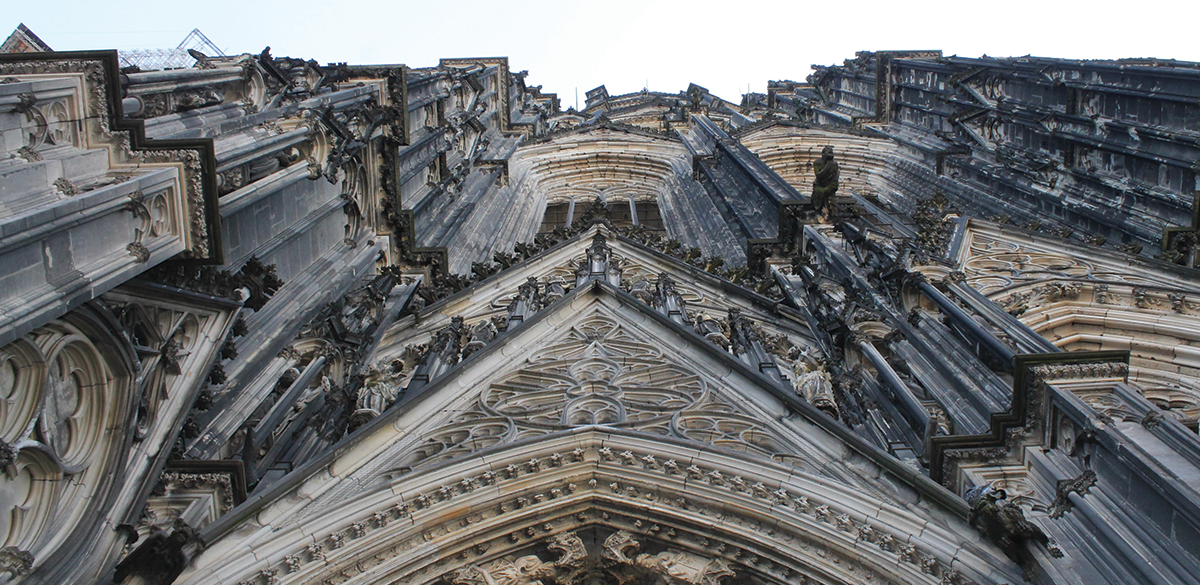One Archbishop, Two Funerals
Janis Gibbs, Ph.D. | Associate Professor of History
In the years following Martin Luther’s posting of his 95 Theses, a wave of Protestant conversion swept through many German cities. Why, then, did the residents of Cologne remain predominantly Catholic? To this day, this remains a mystery to historians, including Dr. Janis Gibbs, who has pursued the answer for years.
Long after completing her doctoral dissertation on religious identity in Cologne, Gibbs began to research the understanding of conversion in 16th-century Germany. Her research took place primarily in the city’s archives until 2009, when the archives building collapsed, forcing Gibbs to move her work to other libraries.
In 2011, during sabbatical research funded by a grant from the Herzog August Bibliothek, Gibbs discovered something that fed her fascination: records about two archbishops of Cologne who became Protestants in the 1500s. The first, Hermann Von Wied, was deposed as archbishop (and from his position as prince of the Holy Roman Empire) when he was accused of being Protestant. The second married his concubine, a clear sign that he no longer considered himself a Roman Catholic priest. Von Wied particularly interests her, and back at Hope College she’s continued to probe his story.
“When Hermann died shortly after his deposition, he had two funerals — a Protestant one (which was first; they buried him in his family’s hometown in the Protestant church and provided the same funeral readings that Martin Luther received) and a Catholic one. The Catholic Church, in fact, paid the bill,” Gibbs says. “The question is, Why did he have two funerals?”
Gibbs believes that Protestants wanted to claim Hermann. They believed him to be Protestant, even though he didn’t marry as most priests who converted to Protestantism did. The Catholic Church’s decision to pay for the funeral is even more intriguing. After all, they deposed him for allowing Reformed clergy to preach in the diocese and for publishing a treatise on Reformation theology.
“At what point did differences with the traditional church become so severe that a person was no longer considered a member of the church, but rather a member of a dissident — Protestant — church?” she asks.
Gibbs studied this question with Brent Wilkinson ’13, who served as a research assistant on the project. Today, Gibbs teaches a course about the Reformation every other fall, and she shares the findings with the students. “Even though much work still has to be done, I am one step closer to explaining the longstanding mystery of Cologne’s lack of an official Reformation,” says Gibbs.

